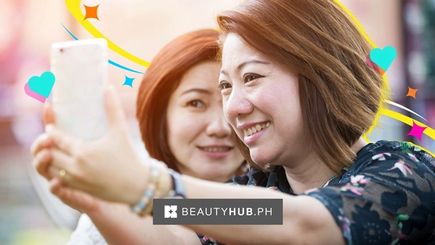
Modern society can be oriented toward youth and performance, so it's no surprise that attitudes toward aging are ambivalent. Ask anyone about age stereotypes and you're likely to find more negative than positive beliefs. While positive stereotypes see older adults as warm, loyal, and reliable, negative labels about being sickly, lonely, depressed, forgetful, and unattractive are predominant.
Ageism and Women
Ageism, or the attitudes and beliefs, feelings, and behavior toward people based on their old age, affect how we see and treat the elderly. It can lead to discrimination and undermines successful aging – a life free from disease and disability, with good cognitive and physical functioning, , and productive activities.
Women are doubly discriminated against. The from the America Association of Retired Persons (AARP) polled 6,643 women of all ages and ethnicities to reveal the bias faced at work and in everyday encounters. Women 50 years old and up felt disrespected for "being too old" while those under 50 believed they were treated unfairly for "being too young."
show that regularly being discriminated against affects your , leading to depression, anxiety, and psychological distress. It also affects physical health by increasing your risk for unhealthy behaviors that can result in diseases like heart disease, metabolic syndrome, and more.
5 Common Age Stereotypes
1. Older adults are less competent or motivated to work.
In the Philippines, arbitrary age requirements prevent older people from getting hired while some employers will impose early retirement due to old age. The mandatory retirement age is 65, but private companies can retire older adults as early as 60.
According to the , older women are more likely to experience age discrimination due to existing gender inequality. A cites that gendered ageism is on the rise globally. In the UK, ageism affects women earlier than men in the workplace. But older employees, especially women, can still contribute to companies, and older adults are often seen as more loyal and reliable than their younger counterparts.
2. Older people are unattractive and unwanted.
According to a published in the Journal of Gerontology, research on gendered ageism linked age discrimination to perceptions of female physical appearance, causing women a lot of stress. The 2019 Trend Brief on Gendered Ageism also discussed how women managers felt pressured to conform to and maintain a .
In the AARP 2022 Mirror/Mirror Survey, 81% of working women 50 years old and over and 92% of working women 18 to 49 were told to look or act a certain way at work. Women of all ages said their , physical appearance, and social class were among the more prominent biases that affected their mental health.
3. Older people in the workplace are harder to train.
There's an assumption that older people have a more challenging time changing, making them less competent and less valuable to the company. Although aging can affect mental function, older adults can still learn new skills and form new memories. When given time to learn tasks, older adults can perform just as well as younger people. Growing evidence shows that the brain can change and adapt so people can tackle new challenges even as they age.
4. Older people suffer memory loss.
People often attribute "senior moments" or memory lapses to older people. When a younger person is forgetful, it's due to other causes, such as being distracted or other changeable factors. Although the elderly can experience mild forgetfulness, not all older people suffer from memory loss or mild cognitive impairment. Similarly, dementia or Alzheimer’s is not a normal part of aging.
5. Old people are weak and sickly.
Older adults, senior citizens, and the elderly are often thought of as weak and sickly, with poor health. But many older adults can engage in moderate physical activity to boost their mobility and help manage chronic conditions. Anyone with low physical activity will eventually become frail. So, you must stay active. Regular exercise, whatever your age, is necessary for both physical and mental health.
Aging Gracefully
The path to successful aging can start at any age. It includes nutrition, fitness, and other healthy habits to help you . This includes behaviors like maintaining good oral hygiene with Closeup Red Hot Toothpaste, which has an antibacterial formula and micro-shine crystals for a stunning smile.
Skin and scalp care are also important. Dove Derma care Scalp Soothing Moisture Shampoo has a pH-balanced formula that relieves scalp irritation for healthy, flake-free tresses. POND'S Bright Miracle Ultimate Clarity Day Serum hydrates and protects the skin's natural barrier while enhancing radiance.
By developing a positive outlook on aging, you can help combat age stereotypes. Share this article to help fight age discrimination and gendered ageism.